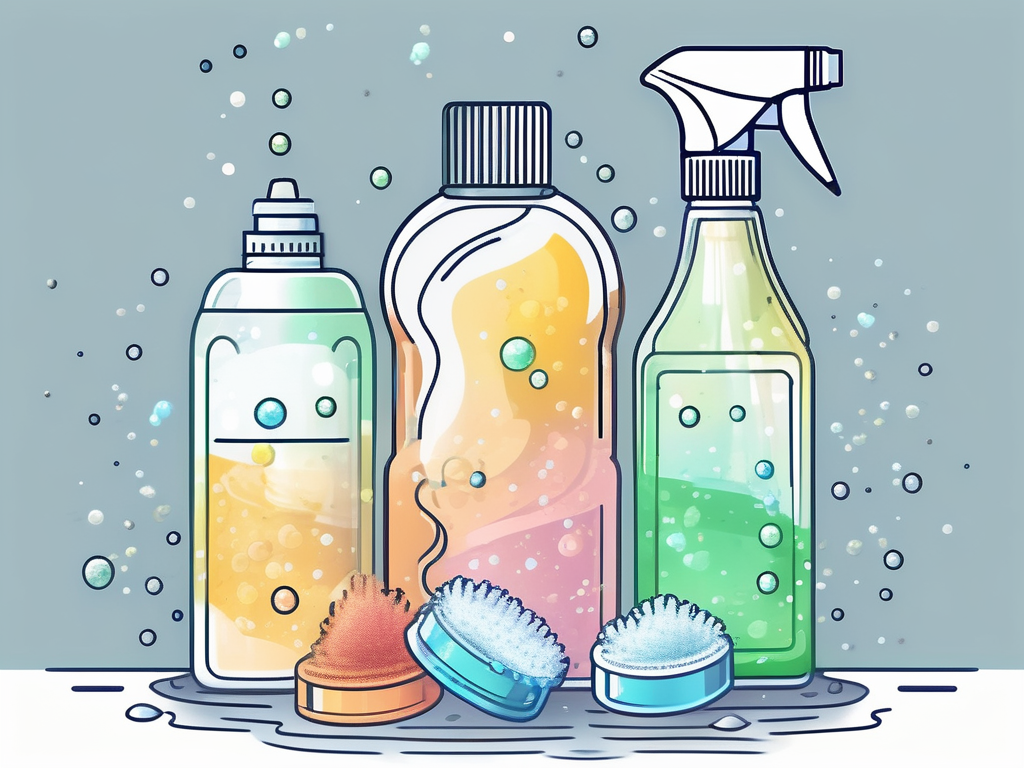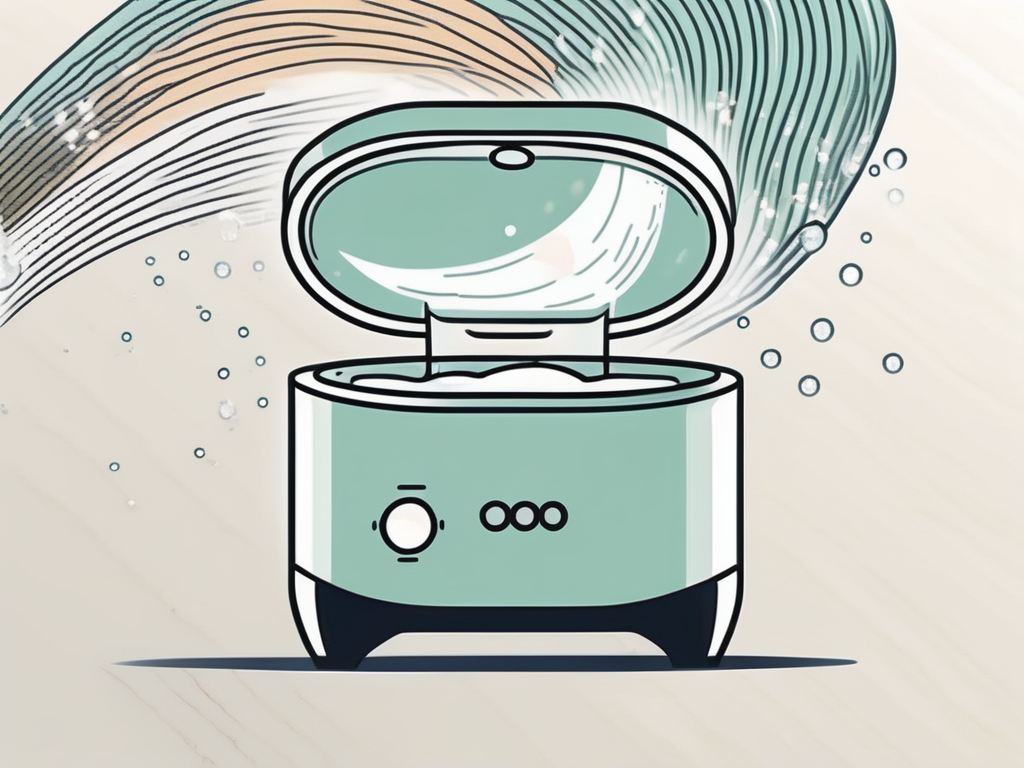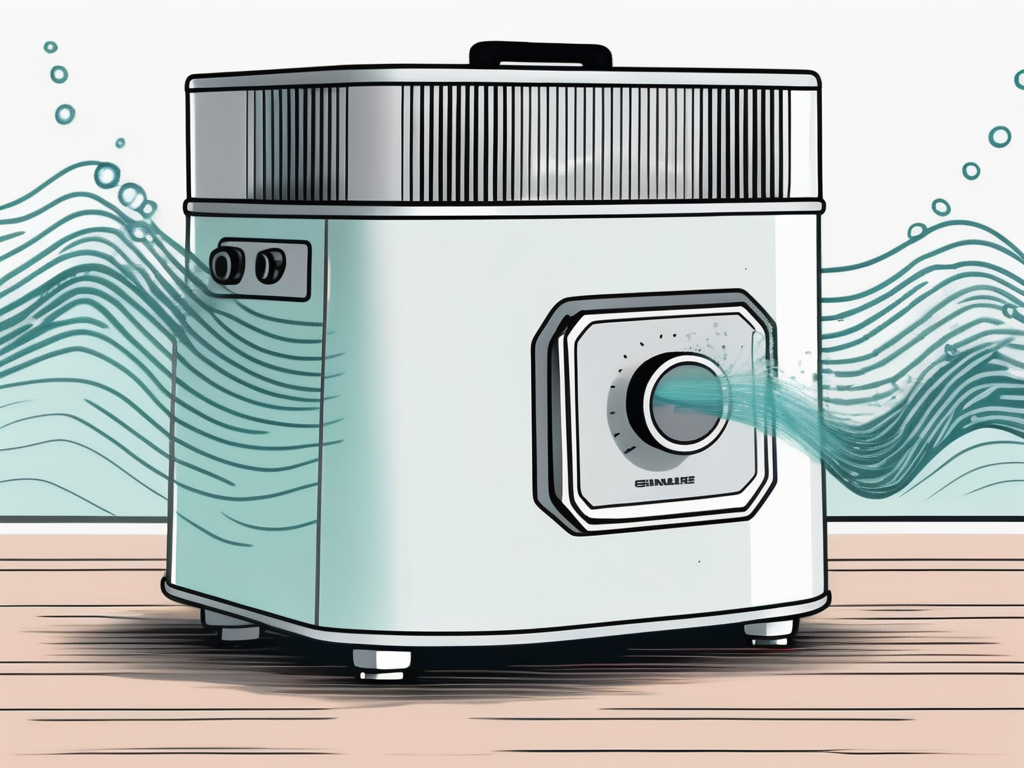Retainers play a crucial role in maintaining optimal dental health after orthodontic treatment. They help keep teeth aligned and prevent them from shifting back to their original positions. However, to ensure their effectiveness, proper cleaning and maintenance are essential. In this comprehensive guide, we will explore the importance of retainer cleaning, different types of retainer cleaners, factors to consider when choosing a cleaner, and provide a step-by-step guide on how to clean your retainer effectively. Additionally, we will discuss how to maintain your retainer post-cleaning, including proper storage and the need for regular check-ups and replacement.
Understanding the Importance of Retainer Cleaning
Retainers are custom-made devices that are typically made of plastic or metal. They are designed to fit over your teeth, holding them in their corrected positions. As you wear your retainer, it can accumulate plaque, bacteria, and food particles. Failing to clean your retainer properly can lead to oral health issues such as cavities, gum disease, or bad breath.
It is important to note that the material of your retainer can also impact its cleanliness. For example, plastic retainers are more prone to bacterial growth compared to metal ones. Therefore, it is crucial to follow specific cleaning instructions provided by your orthodontist to ensure the longevity of your retainer and maintain good oral hygiene.
The Role of Retainers in Dental Health
Retainers are a crucial part of maintaining the results of orthodontic treatment. They help stabilize and maintain the alignment of your teeth, ensuring that they do not shift back to their original positions. Without proper retention, teeth can gradually move out of alignment, negating the effects of previous orthodontic treatment.
Furthermore, retainers play a significant role in jaw alignment and bite correction. They help in distributing the pressure of your bite evenly, preventing issues such as temporomandibular joint (TMJ) disorders. By wearing your retainer as instructed and keeping it clean, you are not only preserving your straight smile but also promoting overall oral health.
Why Regular Cleaning is Essential
Regular cleaning is essential to prevent the buildup and growth of harmful bacteria on your retainer. When left uncleaned, these bacteria can contribute to oral health problems such as tooth decay and gum disease. Additionally, an unclean retainer can develop an unpleasant odor, affecting your overall oral hygiene.
Moreover, proper cleaning of your retainer can also prevent discoloration and deterioration of the material over time. By incorporating retainer cleaning into your daily oral care routine, you are ensuring the effectiveness and longevity of your retainer, ultimately saving you time and money on potential replacements or repairs in the future.
Types of Retainer Cleaners
When it comes to maintaining the cleanliness of your retainer, there are various types of retainer cleaners available on the market. Each of these options comes with its own set of benefits and drawbacks, so it's essential to carefully evaluate them to choose the one that best suits your needs and preferences.
Aside from the traditional commercial and natural cleaning solutions, there are also DIY retainer cleaning methods that you can explore. These methods often involve household items such as baking soda and vinegar. While these DIY solutions may be cost-effective, they may not always provide the same level of thorough cleaning as commercial cleaners.
Commercial Retainer Cleaners
Commercial retainer cleaners are specifically designed and formulated for cleaning retainers. They are available in various forms, including tablets, powders, crystals or solutions. These cleaners are often infused with antibacterial properties that can effectively eliminate plaque and bacteria buildup on your retainer, helping to keep it fresh and hygienic.
Moreover, some commercial retainer cleaners also come with additional benefits such as whitening properties or fresh mint flavors, enhancing the overall cleaning experience. It's important to follow the manufacturer's instructions carefully when using commercial retainer cleaners to ensure optimal results.
Natural Cleaning Solutions
For those who prefer using natural alternatives, there are several options that can be just as effective in cleaning retainers. Solutions made from vinegar, baking soda or hydrogen peroxide can be used to soak and sanitize your retainer, providing a chemical-free cleaning option. However, it's essential to keep in mind that natural cleaning solutions may not always be as potent in killing bacteria compared to their commercial counterparts.
Additionally, natural cleaning solutions may have a distinct odor or taste that some individuals may find off-putting. It's crucial to rinse your retainer thoroughly after using natural cleaning solutions to ensure that no residue is left behind. Ultimately, the choice between commercial and natural retainer cleaners depends on your personal preferences and priorities when it comes to cleaning and maintaining your retainer.
Cleaning with a Toothbrush
One straightforward and accessible method is cleaning your retainer with a toothbrush. This manual cleaning approach allows for direct scrubbing of the retainer, targeting plaque and debris accumulation. A toothbrush, especially when used with mild soap or a non-abrasive cleaner, can effectively remove visible dirt and maintain the retainer's condition. However, this method requires diligence and a gentle touch to avoid scratching or damaging the retainer. While it's an effective routine cleaning method, a toothbrush might not eliminate all bacteria or hard-to-reach particles.
Ultrasonic Cleaners
Ultrasonic cleaners represent a more technologically advanced option. These devices use high-frequency sound waves to create vibrations in a cleaning solution, which then dislodges and removes dirt, plaque, and bacteria from the retainer. Ultrasonic cleaners can provide a thorough and deep clean without the need for manual scrubbing, making them ideal for individuals seeking a hassle-free and effective cleaning solution. Although ultrasonic cleaners are an investment, they are praised for their efficiency and ability to reach areas that manual cleaning might miss.
Cleaning with UV Lights
UV light sterilizers offer a cutting-edge method for sanitizing retainers. By exposing the retainer to ultraviolet light, these devices can kill a wide range of bacteria and viruses without the need for chemicals or physical cleaning. This method is particularly appealing for those looking to eliminate microorganisms effectively, providing peace of mind regarding the retainer's hygiene. However, it's important to note that while UV light sterilizers excel at disinfecting, they do not remove physical debris or stains, so they might be best used in conjunction with another cleaning method.
Evaluating Retainer Cleaner Options
When choosing a retainer cleaner, there are several factors to consider:
Factors to Consider When Choosing a Cleaner
Compatibility with your retainer material, ease of use, effectiveness in removing plaque and bacteria, and cost are all important factors to consider when selecting a cleaner.
It's crucial to ensure that the cleaner you choose is compatible with the material of your retainer. Some cleaners may be too harsh for certain types of retainers, leading to discoloration or damage over time. Additionally, consider the ease of use of the cleaner. A complicated cleaning routine may deter you from properly maintaining your retainer, leading to hygiene issues.
Pros and Cons of Different Retainer Cleaning Methods
Maintaining the cleanliness of your retainer is crucial for oral health and hygiene, but with various cleaning methods available, choosing the right one can be challenging. Each method, from commercial cleaners to natural solutions and innovative cleaning technologies, has its advantages and drawbacks. Understanding these can help you make an informed decision that suits your needs and preferences.
Commercial Retainer Cleaners
Pros: Commercial cleaners are formulated specifically for retainers, offering a high level of effectiveness in removing bacteria and plaque. These products often come with the endorsement of dental professionals, ensuring their safety and efficacy. Additionally, many commercial cleaners are designed for convenience, offering quick and easy cleaning solutions.
Cons: The downside to some commercial cleaners is the inclusion of harsh chemicals, which can be problematic for those with sensitivities or allergies. There's also the environmental impact to consider, as the production and disposal of these products can contribute to pollution and waste.
Natural Cleaning Solutions
Pros: For those leaning towards environmentally friendly options, natural cleaning solutions like a mixture of water and baking soda present a safe and inexpensive alternative. These methods are gentle on the retainer and the environment, minimizing the risk of allergic reactions.
Cons: The trade-off with natural solutions is that they may not always achieve the deep clean that commercial products can. This might necessitate more frequent cleaning to maintain the same level of hygiene, which can be less convenient for some users.
Toothbrush Cleaning
Pros: Cleaning your retainer with a toothbrush is a straightforward and accessible method. It allows for targeted cleaning of plaque and debris, especially when used with a gentle cleaner. This manual method gives you control over the cleaning process and can be quite effective for daily maintenance.
Cons: The effectiveness of this method largely depends on the user's diligence and can be time-consuming. Additionally, there's a risk of scratching or damaging the retainer with overly vigorous brushing.
Ultrasonic Cleaners
Pros: Ultrasonic cleaners offer a sophisticated and thorough cleaning method, using high-frequency vibrations to remove particles and bacteria. This method is efficient, requiring minimal effort from the user, and is capable of reaching places that manual cleaning might miss.
Cons: The main drawback of ultrasonic cleaners is their cost, as they represent a significant initial investment. Additionally, they require access to electricity, which may not be as convenient for everyone.
UV Light Sterilizers
Pros: UV light sterilizers provide a chemical-free way to kill bacteria and viruses on retainers. They are highly effective at sanitizing and offer a modern solution for those concerned about microbial contamination.
Cons: While excellent for disinfection, UV sterilizers do not remove physical debris or stains. This means they may need to be used in conjunction with another cleaning method for comprehensive care.
When selecting a retainer cleaning method, consider factors such as convenience, effectiveness, cost, and environmental impact. Your priorities, whether they lean towards the eco-friendliness of natural solutions, the thorough cleaning power of ultrasonic or UV methods, or the straightforward approach of manual brushing, will guide your choice. Balancing these factors against the specific needs of your retainer care routine can lead you to the optimal cleaning method.
Additionally, it's worth noting that a combination of multiple methods can often yield the best results. For instance, using a toothbrush for daily maintenance while incorporating ultrasonic cleaning or UV sterilization weekly can provide a comprehensive cleaning regimen. This approach ensures not only the removal of daily debris and bacteria but also addresses any buildup or microbes that require more intense cleaning methods. Thus, integrating various cleaning techniques tailored to your lifestyle and retainer type can enhance overall cleanliness and retainer longevity.
Step-by-Step Guide to Cleaning Your Retainer
Follow this comprehensive step-by-step guide to ensure your retainer remains clean and free of harmful bacteria:
Daily Cleaning Routine
Regardless of the cleaning method you choose, dedicating a few minutes each day to your retainer's care is crucial. This simple daily ritual can significantly impact your oral health, preventing bacteria buildup and ensuring your retainer remains fresh and functional.
Whichever methods you integrate, the key is consistency. Just a few minutes of cleaning daily can prevent oral health issues and extend the life of your retainer. This routine not only maintains the cleanliness of your retainer but also contributes significantly to your overall oral hygiene. A little effort goes a long way in keeping your smile bright and healthy.
Deep Cleaning Process
For optimal oral health, it's essential to go beyond your daily cleaning routine by integrating a deep cleaning strategy for your retainer. This approach targets the more stubborn plaque and bacteria accumulations, ensuring your retainer is thoroughly sanitized and safe for continued use.
Begin the deep cleaning process by immersing your retainer in a specialized cleaning solution, or opt for a natural alternative like vinegar or hydrogen peroxide, adhering to the suggested soak time. This initial soak is crucial for softening and loosening tough debris. Following the soak, instead of manual brushing, employ an ultrasonic retainer cleaner. This device uses high-frequency sound waves to agitate the cleaning solution, effectively dislodging and removing any remaining particles from the retainer.
For the best results, incorporate this deep cleaning routine into your daily regimen until you notice a significant restoration in your retainer's cleanliness. This methodical approach not only ensures the removal of persistent deposits but also helps maintain the retainer's hygiene, contributing significantly to your overall dental health.
Maintaining Your Retainer Post-Cleaning
Proper maintenance of your retainer is essential for its longevity and functionality. After cleaning your retainer, there are additional steps you can take to ensure it remains in top condition.
Proper Storage for Retainers
When not in use, store your retainer in a clean and ventilated case to prevent it from becoming a breeding ground for bacteria. It's important to note that using a case with proper ventilation helps prevent moisture buildup, which can lead to bacterial growth. Additionally, consider using a retainer case with antimicrobial properties to further protect your retainer.
Avoid exposing your retainer to extreme heat or direct sunlight, as this can cause it to warp or lose its shape. If your retainer becomes misshapen, it may no longer fit properly, affecting its effectiveness in maintaining your teeth alignment.
Regular Check-ups and Replacement
Regular dental check-ups are crucial for monitoring the condition of your retainer and overall oral health. During these visits, your dentist will assess the fit of your retainer and check for any signs of wear and tear. They will also determine if any adjustments or replacements are necessary to ensure your retainer continues to function optimally.
Remember to follow your orthodontist's instructions and maintain good oral hygiene practices to ensure the continued effectiveness of your retainer in keeping your teeth aligned and promoting dental health. Proper care and maintenance of your retainer not only protect your investment in orthodontic treatment but also contribute to a healthy and beautiful smile for years to come.
By understanding the importance of retainer cleaning, evaluating different cleaner options, and following a proper cleaning and maintenance routine, you can ensure that your retainer remains clean, effective, and contributes to your ongoing oral health. Taking these extra steps in caring for your retainer will help you preserve its quality and functionality, ultimately benefiting your dental well-being in the long run.


